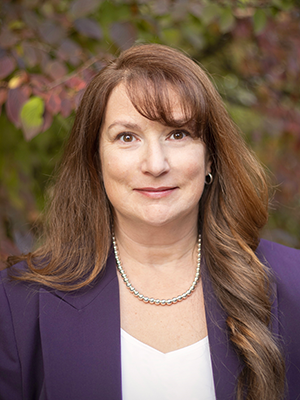Heather Honey, a leading figure in election integrity advocacy, has faced significant personal threats and media backlash in recent weeks following her involvement in efforts to challenge voter eligibility in Pennsylvania prior to the Nov. 5 election.
Honey, a Pennsylvania resident, is executive director of the Election Research Institute and a member and representative of PA Fair Elections. She defended the legality of voter challenges made by her group and others.
“The idea that anyone filed a challenge in bad faith is absurd,” she said. “The Secretary of the Commonwealth himself admitted that individuals filing these lawful challenges have been subjected to threats severe enough to require police involvement.”
Challenges to voter eligibility are not an uncommon occurrence and are a part of routine election procedures in Pennsylvania.
“If someone goes to vote and their name isn’t in the poll book, they vote provisionally. The board reviews these ballots and decides whether or not they should be counted. In the same way, voters can be challenged on eligibility, whether for mail-in ballots or in-person voting,” Honey told DVJournal.
She pointed to the election code, which allows poll watchers to challenge voter eligibility if they do not meet certain requirements.
“For example, if I know my neighbor moved to Texas but still shows up to vote in my precinct, I can challenge their eligibility. This happens all the time – it’s a process that’s been in place for years,” she said.
The controversy began when challenges were filed against individuals, particularly those voting via absentee ballots from international locations.
Honey emphasized the distinction between different categories of voters in Pennsylvania.
“We have people who are temporarily overseas, military voters, and those who have moved permanently out of state and are not eligible to vote. Some counties fail to register voters who are permanently overseas, despite federal law mandating their registration as absentee voters,” she said.
Federal and state laws require counties to verify the existence of an international absentee voter.
But Honey suggested only 11 of the Keystone State’s 67 counties register voters correctly.
“That’s a problem because the state is failing to comply with federal law,” she argued.
The recent challenges were aimed at ensuring compliance with both state and federal laws, said Honey, and not intended to disenfranchise voters. Instead, Honey said the challenges were to make sure lawfully registered voters were properly identified and had their ballots counted “just like everyone else’s.”
Secretary of the Commonwealth Al Schmidt felt otherwise. He accused Honey and others of scheming to make “bad faith mass challenges” on thousands of mail-in ballot votes.
The threats started after places like The Philadelphia Inquirer, CBS News, and The New York Times featured Honey and her efforts.
“The absolute lies out of the secretary of state and instigating these threats of violence against everybody is, it’s just despicable,” said Honey. “I would love for everybody to know how despicable it is.”
She noted one person vowed to “cancel my birth certificate” while a second person left a threatening voicemail. Police reports have been filed.
It wasn’t just Honey who was threatened.
“A woman in Dauphin County received an email identifying her children and threatening harm,” she said. “Another individual up north had police patrols at her house because her home address was made public by county officials.”
Honey blamed misinformation from false media reports for the “real and frightening” threats.
“The Philadelphia Inquirer ran a story claiming I orchestrated the challenges, but that’s false. I wasn’t even involved,” she said. The Inquirer eventually changed its story.
Honey wanted people to remember that challenging voters is common practice. She called the attacks on her and her efforts “outrageous.”
“These challenges were completely lawful. The process is designed to ensure the integrity of the vote. To label them as bad faith is an attack on the rule of law.”
The biggest problem for voter integrity groups? A misleading public narrative that voter challengers are part of a conspiracy to undermine elections.
Honey believes a sensational press misrepresents the facts by failing to explain the legal process or give historical context. “Lies get spread, and people believe them without understanding the actual legal framework,” she said.
The accusations have taken a toll on those involved in the challenges.
“It’s terrifying to think that people are afraid to stand up for the law because they fear violent retribution,” she said. “But that’s what’s happening right now.”
Honey expressed concern that the fear of backlash would intimidate others from challenging voter eligibility in the future. She said the entire election integrity process is undermined when people fear doing the right thing.
“The challenges we filed were done in good faith, in full compliance with the law,” she said. “And no amount of media smear campaigns or violent threats will change that.
“We need to focus on upholding the integrity of the election process, not silencing those who are working within the system to ensure it works fairly for everyone.”

